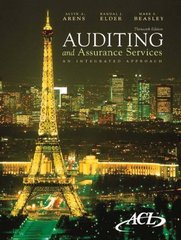Question
Part II: A Case Study in Chapter 13 Bankruptcy - Chapter 13: What Debts Are Dischargeable? In re Ryan - Read the case study below
Part II: A Case Study in Chapter 13 Bankruptcy - Chapter 13: What Debts Are Dischargeable? In re Ryan - Read the case study below concerning Chapter 13 bankruptcy and answer the three questions at the end of the case study. Be certain to clearly identify your answers to all three questions and be complete in your responses. 389 B.R. 710 9th Cir. BAP, (Idaho, 2008) On July 13, 1995, Ryan was convicted of possession of an unregistered firearm under 26 U.S.C. 5861(d) in the United States District Court for the District of Alaska. Ryan was sentenced to fifty-seven months in prison followed by three years of supervised release. In addition, Ryan was ordered to pay a fine of $7,500, costs of prosecution in the amount of $83,420, and a special assessment of $50.00. Ryan served his sentence. He also paid the $7,500 fine. The district court, following an appellate mandate, ultimately eliminated the restitution obligation. On April 25, 2003, Ryan filed a petition for bankruptcy relief under chapter 7 in the District of Idaho. He received his chapter 7 discharge on August 11, 2003. Shortly thereafter, Ryan filed a case under chapter 13, listing as his only obligation the amount of unpaid costs of prosecution owed to the United States (Government). Ryan completed payments under the plan, and an Order of Discharge was entered on October 5, 2006. The chapter 13 trustees final report reflected that the Government received $2,774.89 from payments made by Ryan under his plan, but a balance of $77,088.34 on the Governments costs of prosecution claim remained unpaid. Ryan then renewed his request for determination of dischargeability. The bankruptcy court held that the unpaid portion of the Governments claim for costs of prosecution was excepted from discharge by 1328(a)(3). Ryan appealed. The Court concluded that the exception to the discharge included in [Chapter 13] for restitution, or a criminal fine, included in a sentence on the debtors conviction of a crime does not cover costs of prosecution included in such a sentence, and REVERSED the bankruptcy courts judgment.
Case Questions 2. What is the difference between criminal restitution (which in 1994 Congress said could not get discharged at all) and the costs of prosecution?
Step by Step Solution
There are 3 Steps involved in it
Step: 1

Get Instant Access to Expert-Tailored Solutions
See step-by-step solutions with expert insights and AI powered tools for academic success
Step: 2

Step: 3

Ace Your Homework with AI
Get the answers you need in no time with our AI-driven, step-by-step assistance
Get Started


